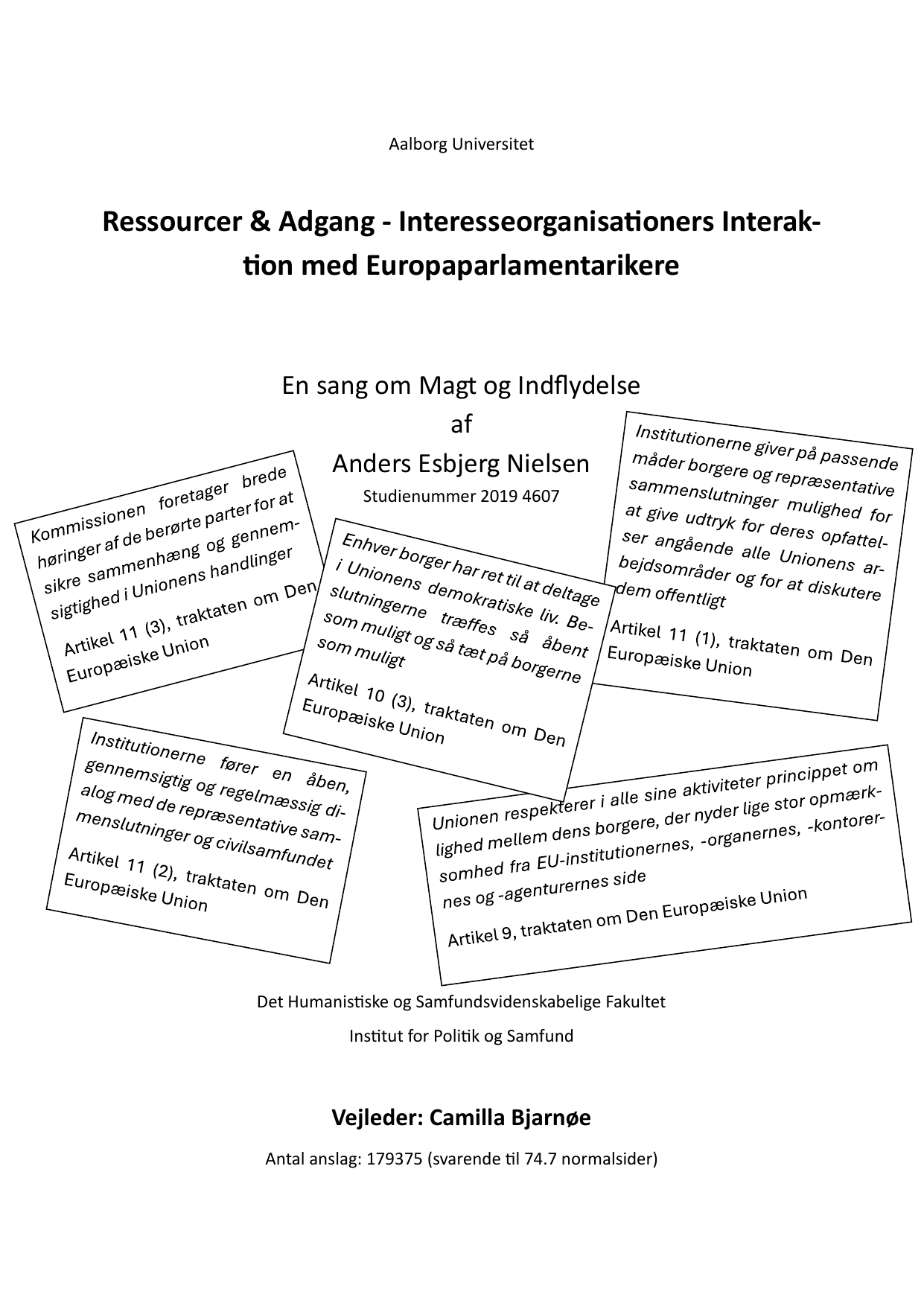
Ressourcer & Adgang - Interesseorganisationers Interaktion med Europaparlamentarikere
Oversat titel
Resources & Access - Interest Groups' Interaction with Members of the European Parliament
Forfatter
Semester
4. semester
Uddannelse
Udgivelsesår
2024
Afleveret
2024-12-31
Antal sider
75
Abstract
As political parties diminish in size and interest groups grow stronger the dynamics of political influence within the European Union are undergoing significant change. This incremental transformation highlights the increasing role of interest groups’ ability to shape political outcomes. Consequently, the political influence of these groups has revived academic debates and normative concerns regarding their impact on the legislative process in the EU. To address these issues, several transparency initiatives have been implemented by the European Union such as the Transparency Register and the parliamentary meeting register. The Transparency Register require interest groups to register and disclose financial and interest information in a public database should they want access to the Unions representatives. Furthermore, the parliamentary meeting register oblige parliamentarians to disclose their interactions with interest groups to a varying degree. Given the complexity of measuring and operationalizing political influence this study focuses on access as a precursor for political influence thereby examining patterns of interest groups’ access to the European Parliament during the first half of the ninth parliamentary election cycle from June the 7 th 2019 to December the 31 2022. Access, while not a perfect proxy for influence, provides critical insights into the potential power dynamics at play. By leveraging data from the aforementioned transparency initiatives this study examines to what extent financial and informational capacities affect the frequency of meetings between interest groups and parliamentarians. This investigation is done through the theoretical scope of modern pluralism and Bouwens resource exchange theory. The study explores two hypotheses. Firstly, to what extent do financial resources affect interest groups’ accessibility to European Parliament and secondly do parliamentarians demonstrate a preference for information given by European interest groups, national interest groups or corporations. Lastly a research question was included to investigate whether specific types of interest organizations, such as trade unions, NGOs, corporations, or business associations, influenced their likelihood of gaining access to the Parliament The findings reveal a positive correlation between financial resources and parliamentary access. However, this access is unevenly distributed. While the average interest group secures approximately 3 to 4 meetings during the time period, some of the most active groups enjoyed over 100 meetings each, underscoring a significant disparity in representation. Besides, european interest groups enjoy an average of two more meetings than their national counterparts or companies, resulting in six meetings compared to four. Interestingly, interest groups enjoy the same amount of access to the European Parliament independently of the group type (e.g., trade union, NGO, business association or corporation). The results are somewhat encouraging as the EU’s efforts to enhance accessibility for civil society organizations, particularly NGOs, appear to have mitigated traditional barriers to their mobilization. However, the results suggest that financial resources continue to influence access, skewing representation toward financially stronger interest groups. This imbalance raises questions about the equity of interest representation within the European Union’s democratic framework.
Emneord
